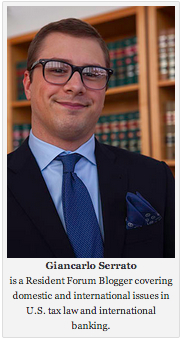Wealthy Americans no longer need to look to the year-round tropical tax-haven paradises such as the Cayman Island, Bermuda or the British Virgin Islands to avoid the “taxman” knocking on their doors. Instead, they can just go to South Dakota!
South Dakota has emerged as one of the most favorable jurisdictions in the United States vis-a-vis trust fund law, making it an attractive situs for setting up trusts and avoiding estate taxes to the federal government. The type of trust that is creating a steady stream of clientele for attorneys in South Dakota is dubbed a “Dynasty Trust” or more appropriately a “Perpetual Trust.”
So, what is special about these trusts?
Dynasty Trusts allow a grantor to transfer and distribute his wealth over the span of multiple generations and, in the process, avoid having future generations pay estate taxes on the grantor’s estate. This is achieved thanks to S.D. Codified Laws § 43-5-8. Under this provision, the common law rule against perpetuities (“RAP”) is not operational in South Dakota. No RAP eliminates limitations on the grantor to bequest and condition gifts for remote descendants that are not born at the time the trust is settled; e.g. a father as settlor and a great-great grandson as a beneficiary.
The existence of “Dynasty Trusts” would not be possible without the Generation Skipping Transfer Tax Exemption (“GSTT”) 26 U.S.C. §§ 2601, 2631 (2013). The GSTT imposes a 40 percent tax on gifts or transfers made to skipping generations; e.g., a grandmother transferring property to a granddaughter, skipping over her daughter; the granddaughter’s mother. (Thanks to William J. Turnier & Jeffrey L. Harrison for this example and others in this blog.) This tax also applies to taxable distributions from a trust that skips a generation. If the grandmother in the last example had set up a trust for the benefit of her daughter and the trust distributed income to her granddaughter instead, then the 40 percent tax would apply.
But like many provisions in the tax code, the GSTT has an exemption. It allows a donor a lifetime exemption equal to the amount of the estate tax exemption under § 2631 (26 U.S.C. § 2631). The 2014 exemption, found in 26 U.S.C. § 2631(c)(3)(b), .is equal to $5.34 million. By way of example, this means that a settlor could fund a trust with $5.34 million, elect for the GSTT exemption, and never have to pay estate tax on the corpus of the trust. The only requirement needed to make this work is that the jurisdiction in which the trust is settled does not enforce the RAP.
What makes South Dakota so attractive over other jurisdictions that have abolished the RAP is its current taxation regime. South Dakota allows for the corpus of the trust to be sheltered from many forms of state taxation. South Dakota imposes no state income tax, no capital-gains tax, no dividend and interest tax, and no intangible tax (e.g. tax on securities) on the corpus of the trust. This allows the assets of the trust to grow and increase in value without the settlor paying taxes, making it highly attractive for efficient estate-planning and tax avoidance.
The rise of “Dynasty Trusts” in the United States can be attributed to inter-state competition to attract state-level business. South Dakota is only one out of twenty-four other states, including Pennsylvania, which has eliminated or severely limited application of the RAP. Much like Delaware with regards to corporate law, South Dakota has emerged as one of the leaders in trust law because of the its low state tax liabilities on trust assets and the abolition of the RAP.
But are “Dynasty Trusts” a good or bad thing? Do they serve a purpose outside of simply fueling business for attorneys in states that recognize them and sheltering substantial amounts of tax revenue from the federal government?
The simple truth is that most Americans cannot escape paying federal and state level estate taxes by establishing “Dynasty Trusts.” This type of estate-planning device is only used by those who have tremendous amounts of wealth and who are willing to pay a hefty price to make sure that the trust continues after they have passed away.
The costs associated with settling and maintaining such trusts are very high and, in some instances, end up canceling out any economic benefit for future generations. In addition, families grow, and as they do, so do beneficiaries of a trust. If the corpus of the trust is moderate, the distributions may be so small to individual future beneficiaries that the original amount sought to benefit the donor’s “dynasty” will not have been worth the expense to settle the trust.
Posted Feb. 26, 2014
